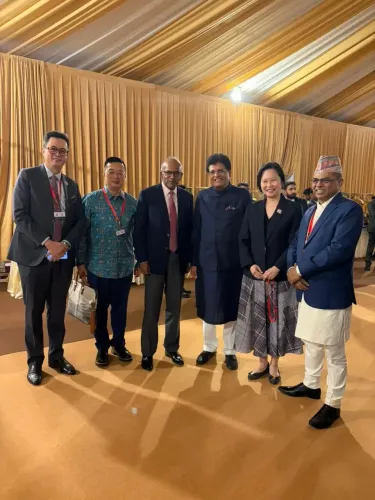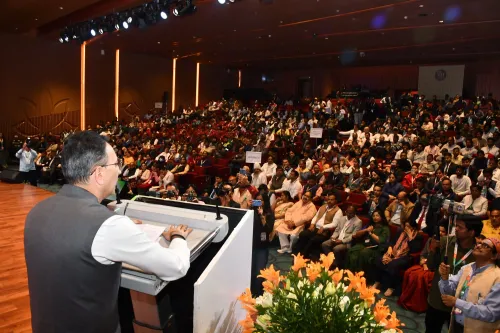66% of Women in India Feel Empowered to Utilize AI

Synopsis
Key Takeaways
- 66% of Indian women feel equipped to use AI.
- Perception of diversity efforts improved from 70% to 40%.
- Nearly 75% report safe workplace environments.
- 10% increase in women citing unfair pay.
- 58% lack strong mentorship.
Bengaluru, March 7 (NationPress) Approximately 66% of women in India now believe they are equipped to leverage artificial intelligence (AI) in their professional roles, a notable increase from less than 40% last year, according to a new report released ahead of International Women’s Day 2025 on Friday.
International Women’s Day 2025 is celebrated annually on March 8. The study, conducted by ANSR, part of the Accel portfolio, demonstrates a significant transformation in workplace diversity initiatives and a growing self-assurance among women regarding AI integration.
The findings indicate that the percentage of women perceiving their organization's diversity efforts as merely symbolic or sluggish has decreased from 70% in 2024 to 40% in 2025, reflecting a marked improvement.
Nearly 75% of women also stated that their workplaces offer a secure and inclusive environment. Nevertheless, ongoing issues such as the glass ceiling, wage inequality, and insufficient mentorship continue to obstruct career progression.
The proportion of women reporting unfair compensation has risen by 10%, and 70%% of women assert that opportunities for career advancement remain elusive. Additionally, around 58% of women express a lack of robust mentorship, a significant increase from 35% last year, underscoring a critical void in leadership development.
“Diversity should not be a statistic but a core priority embedded in an organization’s DNA. Genuine progress is achieved when inclusivity extends beyond hiring—into policies, leadership development, boardroom discussions, and governance. Our survey shows promise year on year, but to foster enduring change, diversity must be fundamental to how businesses operate, not just an initiative,” stated Smitha Hemmigae, Head of Marketing at ANSR.
The report draws insights from over 3,000 women professionals within IT/ITES, Global Capability Centers (GCCs), startups, and product companies across India. It further emphasizes the increasing demand for structured mentorship and leadership development programs, with 58% of women reporting a lack of strong mentorship.
This gap in leadership support is particularly noticeable in Global Capability Centers (GCCs), where organizations are increasingly focused on cultivating leaders who can manage diverse, global teams.
As the necessity for leadership talent escalates, companies must invest in training programs that empower women with the skills to navigate cross-cultural challenges, drive innovation, and make strategic decisions, according to the report.









